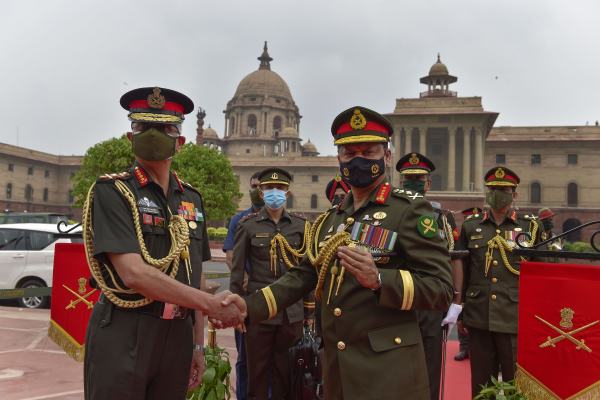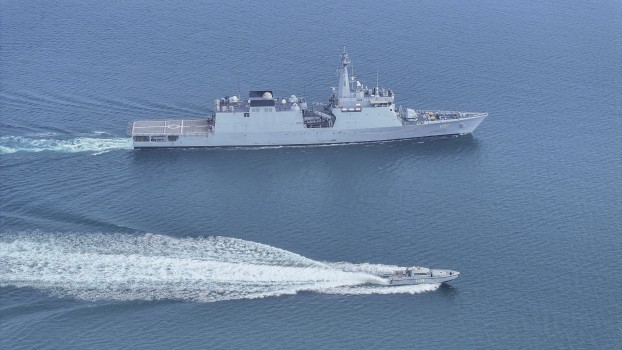NEW DELHI (PTI): The lack of framework for cooperation between military and civilian entities is preventing India from innovating and manufacturing next-generation space technology on a large scale, Air Marshal Vivek Ram Chaudhari has said.
"In our context, the Indian space eco system -- at present being largely civilian in nature -- works around the Space Commission and its constituent Department of Space," said the Vice Chief of the Indian Air Force (IAF) at an event of industry body FICCI on Tuesday.
The lack of robust "military-civil fusion"-like framework is preventing us from innovating and manufacturing next-generation space technologies on a large scale, he said, adding there is a need for a concerted focus on this regard.
According to the US State Department, "military-civil fusion" or MC is an aggressive, national strategy of the Chinese Communist Party (CCP) with a goal to enable China to develop the most technologically advanced military in the world.
A key part of MCF is the elimination of barriers between China's civilian research and commercial sectors, and its military and defense industrial sectors, stated the US State Department.
Chaudhari said India, at present, does not have indigenous capability to observe, track and identify non-cooperative objects in outer space.
"This not only restricts out defensive counter-space capabilities but also limit our anti-satellite capability in future," he mentioned.
Therefore, space situational awareness is the need of the hour and we should be able to know hostile manoeuvres by adversaries' space objects, he stated.
"The existing capabilities of the ISRO (Indian Space Research Organisation) and the DRDO (Defence Research and Development Organisation) would need to be integrated into the air surveillance picture of the IAF. This integration would be a gradual progression to a comprehensive space surveillance network," he noted.
In India's context, another key focus area should be supplementing our ground-based ballistic missile architecture by creating space-based ballistic missile defence capabilities, Chaudhari mentioned.
"It should enable early warning detection and destruction of ICBMs (intercontinental ballistic missiles) along with location for launch pads and prediction of impact points," he said.
Another changing paradigm in the space application is the growing ubiquity of low-earth orbit satellites or LEO satellites, particularly in domains which were historically done purely by geo-synchronous satellites, he said.
An example is Starlink satellite network launched by SpaceX that provides low latency broadband internet to consumers across the globe, he said.
"While traditional communication satellites with geo-synchronous orbits have proved their worth due to longer service life and wide coverage area, communication satellites in lower and medium earth orbits have their own advantages," he noted.
The disadvantage of requirement of large number of satellites can be mitigated by faster communication and lower vulnerability when compared to existing geo-synchronous satellites, he added.
"We are entering a proliferated low earth orbit with multiple commercial players entering this segment. With time, the technology will rapidly evolve thereby reducing the manufacturing and launching costs which would favour the shift towards this concept," he stated.
I can see that in the near future, this would become the key area of cooperation between the military and the commercial entities, he said.
Chaudhari said on Tuesday that the Defence Space Agency (DSA), which is the lead agency for aggregating the demands of the armed forces in India, could play a key role in synergising the military-civil space cooperation to achieve the desired capabilities.
"This would made increased interplay between both government and commercial space agencies," he mentioned.
Lack of military-civil cooperation framework impeding innovation in space tech: IAF Vice Chief
Article Posted on : - Sep 08, 2021
Other Related News
Developing 'space culture' key as space is emerging new domain of warfare: CDS
Chief of Defence Staff General Anil Chauhan has said that humanity is on the "cusp of an era" where space is emerging as a new domain of warfare.
 Previous Article
Previous Article Next Article
Next Article










The Indian Air Force, in its flight trials evaluation report submitted before the Defence Ministry l..
view articleAn insight into the Medium Multi-Role Combat Aircraft competition...
view articleSky enthusiasts can now spot the International Space Station (ISS) commanded by Indian-American astr..
view article